Protocol Buffers
Jeff Wang - @jf423

OVERVIEW
-
PROTOCOL BUFFERS
-
PROTOBUF.JS
-
PROTOC-GEN-DOC
-
WHAT NEXT?
Protocol Buffers are a way of encoding structured data in an efficient yet extensible format.
- Google designed and used since 2001. (proto1)
- Open-sourced in 2008. (proto2)
- A language neutral, platform neutral, extensible way of serializing structured data.
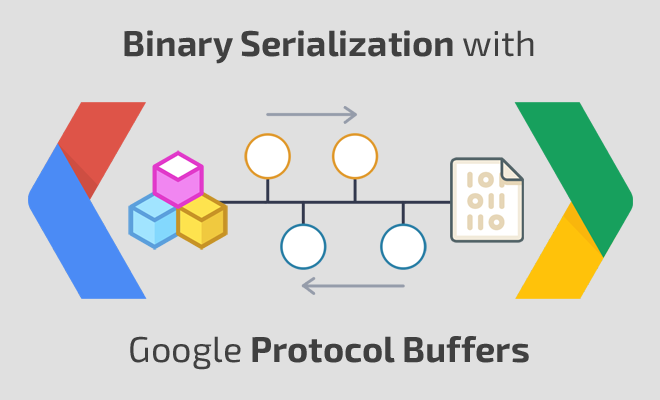

JSON
expensive & massive
unclear type
readable
self-contained
portable
light weight & faster
strong type
unreadble
self-describe
need parser
PRoto buffers
vs
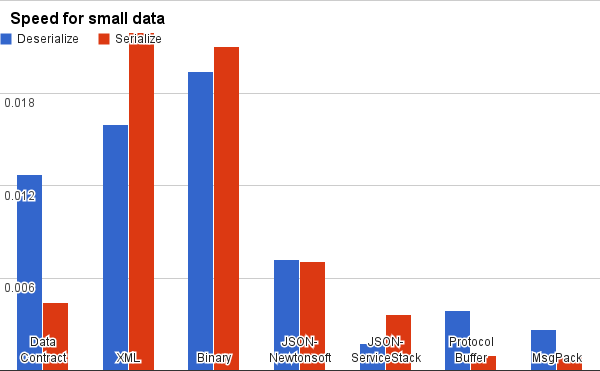
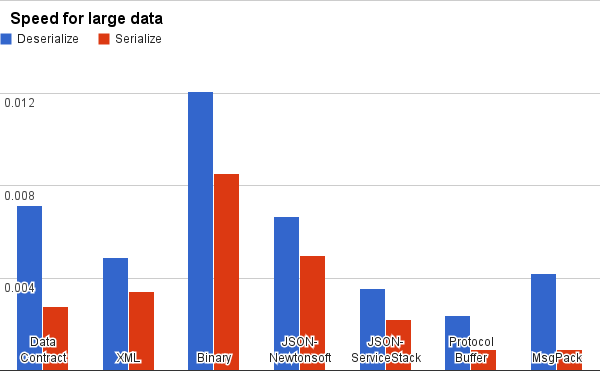
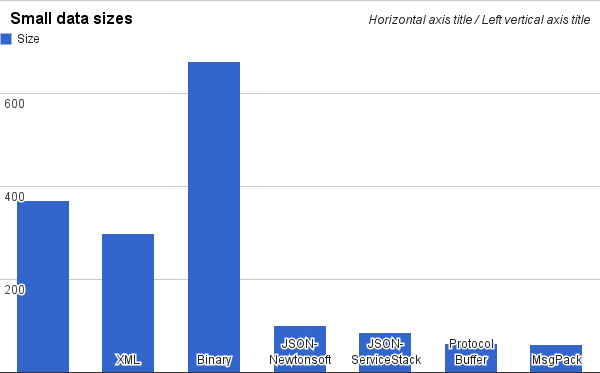
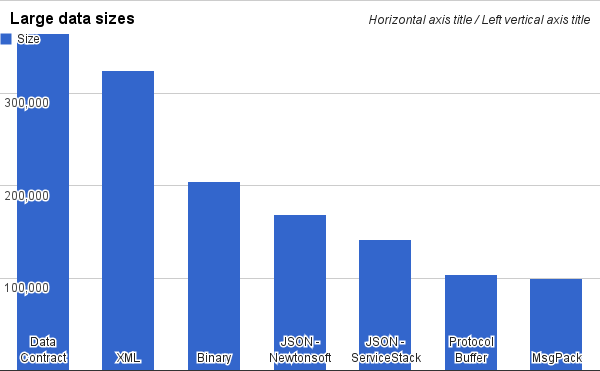
Speed
Size
[+] Setup
/usr/bin/ruby -e "$(curl -fsSL https://raw.githubusercontent.com/Homebrew/install/master/install)"brew install automake
brew install libtool
brew install protobuf[+] Steps
- Step 1 (SCHEMA)
Define structured data format by creating a .proto file.
- Step 2 (IMPLEMENTATIONS)
Generated interface code from a .proto file for serializing/ deserializing the protobuf.
- Step 3
Use the interface from the generated code to exchange your message.
[+] schema
-
The definition of protobuf to serialize/deserialize the data.
- Strong type
- Nested & Importing
- type & name-value pairs
- Each type has one or more unique number for binary mapping.
(.proto)
syntax = "proto3";
package Ecommerce;
message Product {
bool available = 1;
string name = 2;
string desc = 3;
float price = 4;
repeated Item item = 5;
}
message Item {
string title = 1;
int32 number = 2;
}
[-] .proto
syntax = "proto3";
package Ecommerce;
message Product {
bool available = 1;
string name = 2;
string desc = 3;
float price = 4;
repeated Item item = 5;
}
message Item {
string title = 1;
int32 number = 2;
}
version type
message collection
field's number
field's name
field's type
message type (object)
[+] Implementations
(INTERFACE)
protoc -I=$SRC_DIR --$FORMAT=$DST_DIR $SRC_DIR/xxx.proto
/*
$SRC_DIR=source directory,
$DST_DIR=target directory,
$FORMAT=output language (cpp_out, java_out...)
*/-
The static interface of protobuf implementation.
- Support: Python, C#, C++, Java, Go, PHP, Ruby...
syntax = "proto3";
package Ecommerce;
message Product {
bool available = 1;
string name = 2;
string desc = 3;
float price = 4;
repeated Item item = 5;
}
message Item {
string title = 1;
int32 number = 2;
}
// Generated by the protocol buffer compiler. DO NOT EDIT!
// source: test.proto
#include "test.pb.h"
#include <algorithm>
#include <google/protobuf/stubs/common.h>
#include <google/protobuf/stubs/port.h>
#include ...
// @@protoc_insertion_point(includes)
namespace Ecommerce {
class ProductDefaultTypeInternal {
public:
::google::protobuf::internal::...
_instance;
} _Product_default_instance_;
...// Generated by the protocol buffer compiler. DO NOT EDIT!
// source: test.proto
#ifndef PROTOBUF_test_2eproto__INCLUDED
#define PROTOBUF_test_2eproto__INCLUDED
#include <google/protobuf/stubs/common.h>
#include <google/protobuf/io/coded_stream.h>
#include ...
// @@protoc_insertion_point(includes)
namespace Ecommerce {
class Item;
class ...
} // namespace Ecommerce
...test.proto
test.pb.cc
test.pb.h
[-] INTERFACE
[+] PROS & CONS
- Multiple language support
- Self-describing
- Simpler & Smaller & Faster
- RPC support
- Structure validation
- Unreadable
- Lack self-contained
- Smaller community
👿
😇
pure JavaScript implementation with TypeScript support for node.js and the browser.
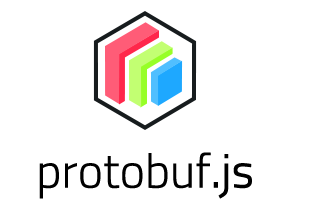
better performance, better documentation
node.js
npm install -g protobufjs[+] Setup
npm install protobufjs [--save --save-prefix=~]
var protobuf = require("protobufjs");browsers
// Development
<script src="//cdn.rawgit.com/dcodeIO/protobuf.js/6.X.X/dist/protobuf.js"></script>
// Production
<script src="//cdn.rawgit.com/dcodeIO/protobuf.js/6.X.X/dist/protobuf.min.js"></script>
[+] Implementations
(INTERFACE)
# ComoonJS
pbjs -t static-module -w commonjs -o $DST_DIR/xxx-common.js $SRC_DIR/xxx.proto
# ES6
pbjs -t static-module -w es6 -o $DST_DIR/xxx-es6.js $SRC_DIR/xxx.proto
# json
pbjs -t json -o $DST_DIR/xxx.json $SRC_DIR/xxx.proto
# json-module
pbjs -t json-module -o $DST_DIR/xxx-json.js $SRC_DIR/xxx.proto
/*
$SRC_DIR=source directory,
$DST_DIR=target directory,
$FORMAT=output language (cpp_out, java_out...)
*/[+] usage
import ProtoBuf from 'protobufjs';
import proto from './schema/protos/xxx.proto';
ProtoBuf.load(proto, function(err, root) {
if (err)
throw err;
const Product = root.lookup('Ecommerce.Product');
const result = Product.decode(data);
console.log(result);
});import { Ecommerce } from './interface/test-es6';
const result = Ecommerce.Product.decode(data);
console.log(result);Reflection
static code
[-] compare
| Source | Library | Advantages | Tradeoffs |
|---|---|---|---|
| .proto (Reflection) |
full | Easily editable Interoperability with other libraries No compile step |
Some parsing and possibly network overhead |
| JSON (Reflection) |
light | Easily editable No parsing overhead Single bundle (no network overhead) |
protobuf.js specific Has a compile step |
| static (Static code) |
minimal | Works where eval access is restricted Fully documented Small footprint for small protos |
Can be hard to edit No reflection Has a compile step |
[+] flow
interface
message
encode
decode
binary
.proto
interface
message
Documentation generator plugin for the Protocol Buffers.
- Support proto2 and proto3.
- Support multiple form of document. (HTML, JSON, DocBook and Markdown)
- Simple.
(Based on comments)
[+] Getting started
docker pull pseudomuto/protoc-gen-docdocker run --rm \
-v $DST_DIR:/out \
-v $SRC_DIR:/protos \
pseudomuto/protoc-gen-doc --doc_opt=$FORMAT,$FILE
/*
$SRC_DIR=source directory,
$DST_DIR=target directory,
$FORMAT=output form (Markdown, HTML, JSON, DocBook)
$FILE=the output file (xxx.md, xxx.html...)
*/usage
A central repository for all proto files of PokémonGO.
syntax = "proto3";
package POGOProtos.Map.Pokemon;
import "POGOProtos/Enums/PokemonId.proto";
import "POGOProtos/Data/PokemonDisplay.proto";
message NearbyPokemon {
.POGOProtos.Enums.PokemonId pokemon_id = 1;
float distance_in_meters = 2;
fixed64 encounter_id = 3;
string fort_id = 4;
string fort_image_url = 5;
.POGOProtos.Data.PokemonDisplay pokemon_display = 6;
}

an open source remote procedure call (RPC) system

references
- Library
https://github.com/google/protobuf/tree/master/js
https://github.com/dcodeIO/ProtoBuf.js/
https://github.com/pseudomuto/protoc-gen-doc
- Guide
https://developers.google.com/protocol-buffers/docs/overview
http://fred-zone.blogspot.tw/2017/02/nodejs-protocol-buffers.html
http://www.maxzhang.com/2015/09/ProtoBuf-js使用技巧/
- Video
https://www.youtube.com/watch?v=uGYZn6xk-hA
https://www.youtube.com/watch?v=9IUrAZHxn3s
- Protobuf.js
http://dcode.io/protobuf.js/
http://www.10tiao.com/html/420/201707/2659644829/1.html
https://medium.com/francesco-pongetti/using-protocol-buffers-in-a-node-js-angular-web-application-fba17df8ab51
- Proto
https://developers.google.com/protocol-buffers/docs/proto3
https://superlc320.gitbooks.io/protocol-buffers-3-study-notes/content/proto3yu_yan_zhi_nan.html
- Performance
https://auth0.com/blog/beating-json-performance-with-protobuf/
https://www.jianshu.com/p/30ef9b3780d9
Protocol Buffers
By Chien Chieh Wang
Protocol Buffers
- 577



